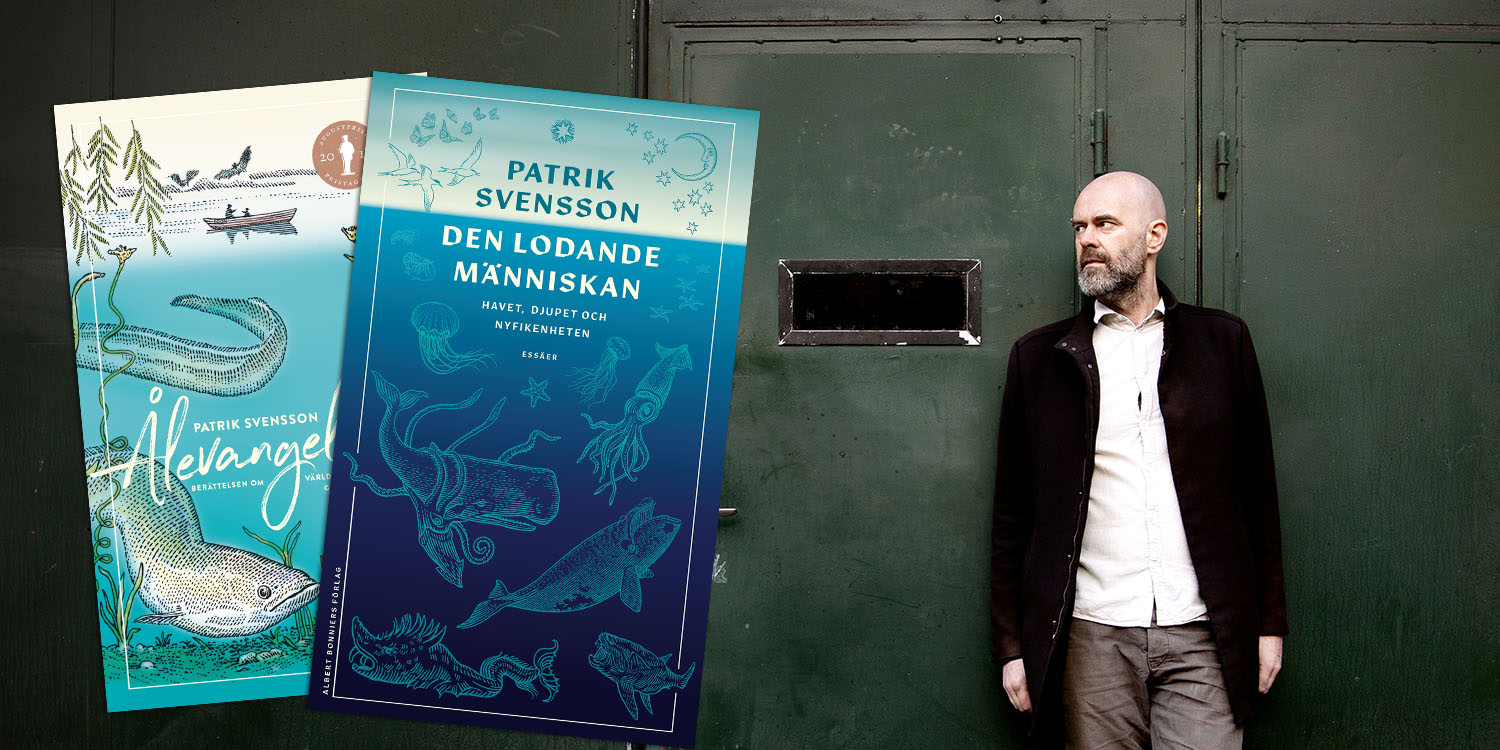
Svensson recently returned from book tours in Gothenburg and in Canada where he discussed his latest book about the sea, The Blue Marble.
Drop by the museum and listen to Patrik Svensson talk about his writing and sign his books (in Swedish). Welcome!
His books take readers on a journey across and under the sea, shedding light on intriguing and, for most people, unfamiliar topics. Historical events are linked to the present day.
“In the Anglo-Saxon world, people talk about nature writing – a mix of science and fiction,” Svensson says.
Both of his books can be counted in this genre along with marine biologist Rachel Carson’s legendary Silent Spring. Published in the early 1960s, her book became a wake-up call for environmental awareness. Carson was a source of inspiration for Svensson, who dedicates one of the essays in the book to her. He is proud to now be a writer himself, reaching out to many by writing about science and discoveries in an accessible way.
Just as in The Book of Eels, his latest title gives the reader a breathtaking time perspective for life on Earth, where a political term of office is a drop in the world’s ocean. Human’s time on earth is short. Yet we have had plenty of time to make an impact, for better or for worse. Why are perspectives from areas like biology and archaeology missing from the public debate?
“Science is complex. It’s not hindsight, but merely a method of attaining knowledge – and that process simply is not taking place in the political debate,” he says thoughtfully.
Protagonists from both the past and the present lead readers into the world of the unexplored. We descend down to pale jellyfish in the Mariana Trench at a depth of nearly 11,000 metres, sail with explorers across the world’s oceans in the 1500s, and visit Rachel Carson’s home on the Atlantic coast in the 1950s.
“In the same time that twelve people have walked on the surface of the moon, and thousands have climbed Mount Everest, only four people have visited the deepest point of the ocean.”
The Gospel of Eels was awarded the August Prize in 2020 and appeared on The New York Times’ list of “100 Notable Books of 2020”.
Svensson previously worked as a journalist at the Swedish paper Sydsvenskan, where he wrote about people, animals, science, politics and, of course, the sea.